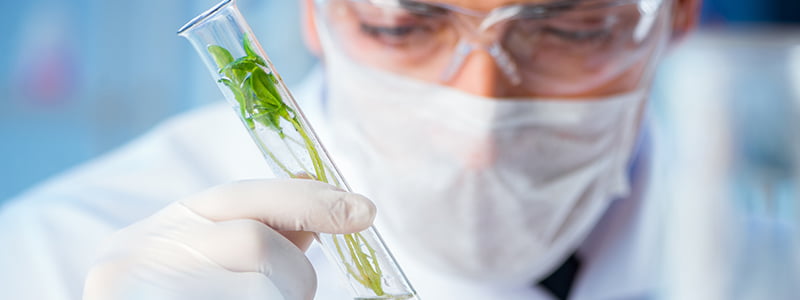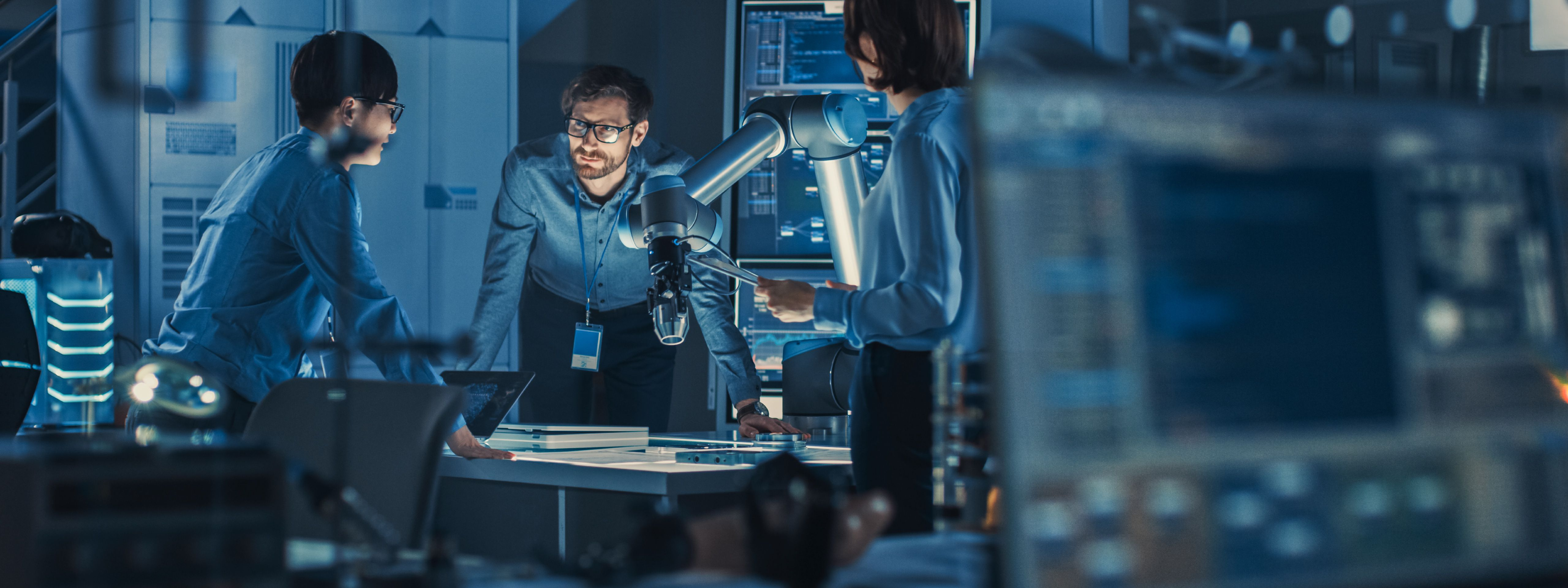Food and beverages are a major contributor to the Australian economy, generating around 250,000 jobs and $30 billion in export value. The federal government’s R&D Tax Incentive and other grants are helping to further enhance the outstanding international reputation Australia’s food and beverage exports enjoy.
Why is R&D in the Food & Beverage Industry important? Although the primary sector is often seemingly associated with less technologically advanced economies, it is definitely not a stagnant area. In particular, the foods and beverages derived from agricultural production are constantly being improved, whether that be more obvious things like achieving higher nutritional value, longer shelf life, more efficient production and packaging processes; or more futuristic innovations like robochefs preparing pizzas, 3D printing of foods; or even attending to large-scale populational trends like the shift toward consuming more plant-based food products, where R&D can help supplant the bland and uninspiring dietary options of the past.
Australia is widely acknowledged for its technological specialisation in the food industry, ranking 14th in food patenting globally, which is comparable with the performance of Canada and Sweden. Nevertheless, there’s plenty more room for Australian innovation in the food and beverage industry, with programs like the federal government’s Research & Development Tax Incentive (RDTI) providing the impetus to continue this performance. As part of the initiative, food and beverage businesses with eligible R&D expenditure are entitled to:
- a refundable tax offset for the R&D when annual turnover is under $20 million; or
- a non-refundable tax offset when annual turnover is more than $20 million.
In the 2020-21 federal Budget, the government set the refundable R&D tax offset at 18.5% above the claimant’s company tax rate and introduced intensity thresholds dictating the benefits for those non-refundable claimants.
Australian innovation in agtech and foodtech is also amply supported by the national science agency CSIRO, universities, and other research institutions. In a 2017 report, CSIRO was ranked in the top 1% of the world’s scientific institutions in 14 research fields.
What expenditure can my company claim as part of the food & beverage R&D we do?
Expenditure associated with Core and Supporting R&D activities can be claimed as part of the RDTI. Core R&D activities are defined in the legislation as experimental activities, whose outcome can only be determined by applying a systematic progression of work that proceeds from a hypothesis/hypotheses to experiment, observations and evaluations, and leads to logical conclusions. The purpose of the R&D must be to generate new or improved knowledge.
With this in mind, for the specific case of R&D in the Food & Beverage industry, some examples of things that may be claimed as contributing to Core or Supporting R&D activities include:
- Expenditure incurred in designing new formulations
- Feedstock or other costs associated with producing test batches
- Salaries/payments to staff or contractors who conduct the R&D
- A proportion of overheads (e.g., rent/leasing of facilities used to conduct the R&D, energy, and software licences used in the core or supporting activities) incurred in the R&D activities
- Depreciation of plant and machinery relating to experimental advanced manufacturing facilities
- Other expenditure incurred on core and supporting R&D activities showing the link to the activities.
What records or information should we keep of our R&D?
In scientific research, the “publish or perish” paradigm is well known, but for the RDTI we could perhaps modify this to “record or regret”. Although the RDTI legislation does not prescribe the types of supporting evidence that should be recorded or maintained by an RDTI claimant, it is clear that such evidence or records must be gathered. Valid records for the purpose of claiming the RDTI are any records that verify or contribute to calculating your claim; however, it is imperative that you have records detailing the ‘unknown outcomes’, ‘new knowledge’ sought, and hypothesis/hypotheses for the experimental activities.
- Important artefacts that serve as proof of what was done in your food and beverage related R&D, and which could easily be used as solid contemporaneous evidence in the case of an audit, include the following:
- contracts or research arrangements
- photos
- written or oral observations recorded
- diary entries
- reports from any Research Service Providers (e.g., CSIRO), which show the results of experiments, analysis and conclusions.
Something that is very important in showing that the outcomes of the experiments could not have been known beforehand is to keep state of the art searches and literature searches relating to your particular area of investigation, as well as other internal records that detail the specific uncertainties that could only have been resolved through an experimental progression of work.
Some real-world examples of the RDTI and other government initiatives assisting food & beverage R&D
Queensland-based Capilano Honey has pioneered industry-leading production and development methods for honey flavour and packaging. After starting out as a small, family business more than 60 years ago, they are now a large co-operative of Australian bee keepers and an ASX-listed company exporting a high-quality product to over 33 countries worldwide. R&D has guided and underpinned the innovative expansion of Capilano’s product range since the very beginning, with the RDTI providing invaluable financial support. As their CEO Dr Ben McKee confirms: “Our R&D projects have resulted in great benefits for our business. We have improved quality control, product sustainability, and business efficiency.”
- In somewhat similar structure to the R&D Tax Incentive, the Export Market Development Grant (EMDG) reimburses expenses incurred for export promotional activities to existing and potential Australian exporters, and may include:
- overseas representation expenses
- marketing consultant expenses
- free samples expenses
- trade fairs, seminars, and in-store promotions expenses
- promotional literature and advertising expenses
- overseas buyers’ expenses
- registration and/or insurance of eligible intellectual property expenses.
Funding is provided to compensate eligible export businesses up to 50% of their promotional expenses above $5000, up to a maximum of $150,000 (provided total eligible expenses incurred are at least $15,000). Given the proven reputation that Australia’s food & beverage exports enjoy worldwide, the EMDG is a grant that many companies in the food & beverage industry can take advantage of, in addition to the RDTI.
Another source of funding for Australian entrepreneurs, researchers, inventors, start-ups, Research Commercialisation Entities, and small and medium enterprises who have a novel product, process or service they want to commercialise is the Accelerating Commercialisation Grant, which provides up to $500,000 of matched project funding for Research Commercialisation Entities and Eligible Partner Entities; and up to $1 million of matched project funding for all other eligible applicants.
CSIRO Kick-Start is an initiative for providing R&D in the Food & Beverage Industry for innovative Australian start-ups and small SMEs. This initiative provides funding support and access to CSIRO’s research expertise and capabilities to help grow and develop start-up and SME businesses. Similar to the RDTI, the research activities can include the development of prototypes, improving methods and processes, or the testing of novel materials to inform R&D. Eligible companies within three years of registration, or with a turnover and operating expenditure of less than $1.5 million, can access dollar-matched funding of $10k–$50k.
Through a CSIRO Kick-Start project, Australian Plant Proteins (APP) optimised the protein content extracted from faba beans to more than 80% (far greater than the 40–45 per cent protein of traditional plant-based powders). This optimization of their faba-based protein powder facilitated access to burgeoning export markets and led to APP being in a position to construct a $35-million plant-protein processing facility in Horsham, Victoria.
The Australian Federal Government has classified the Food and Agribusiness sector as a Growth Sector, meaning businesses undertaking food or beverage production, or supplying integral services or technologies to support food or beverage production are now eligible for the $20k matched Government funding as part of the Entrepreneurs’ Programme.
And in another significant recent development, scale ups now have access to new equity capital through the government’s new $540 million Business Growth Fund (BGF), which will eventually grow to $1 billion. The financing for the BGF is through the Federal government together with the ANZ, CBA, NAB, Westpac, HSBC, and Macquarie banks. The BGF, which will have an independent management team selecting investments, will invest in around 30–50 high growth SMEs annually in return for a 10–40% equity stake.
Whether you’re planning to do R&D in the Food & Beverage Industry, want to know which activities of your current research qualify for RDTI rebates and other grants, or you have some other related queries, Fullstack will help you successfully navigate your way through. Contact us to ensure you obtain all the RDTI and other benefits you’re entitled to. If you are looking for more information on R&D Finance, we have an article on how it works.
Was this article helpful?
Related Posts
- 5 Biggest Questions on Australia’s R&D Tax Incentive
Considering applying for the R&D Tax Incentive? We cover off on the 5 biggest questions…
- R&D Tax Incentive FY2022 Restructure
If you are preparing to claim the R&D Tax Incentive, note some of the benefits…
- R&D Tax Incentive Updates for FY23 per the 2020-2021 Budget
What do recent budget proposals mean for the status of the R&D Tax Incentive in…
- R&D Tax Incentive 2020 Budget Updates
How does the 2020 Federal budget impact access to the R&D Tax Incentive? Read on…

















